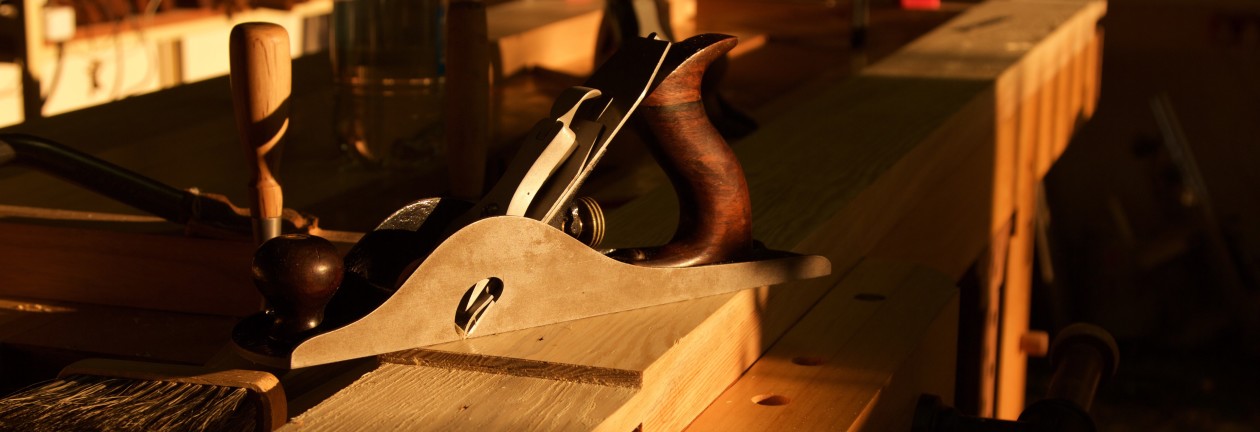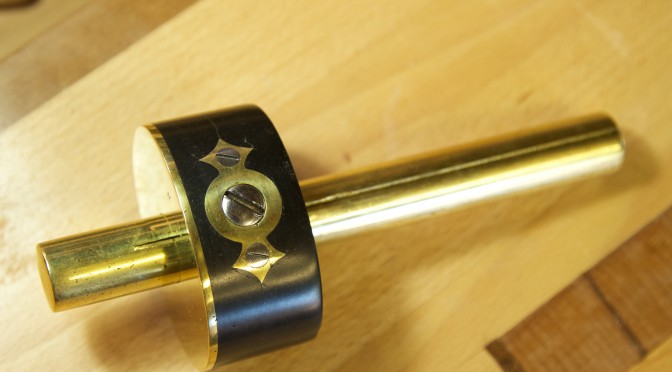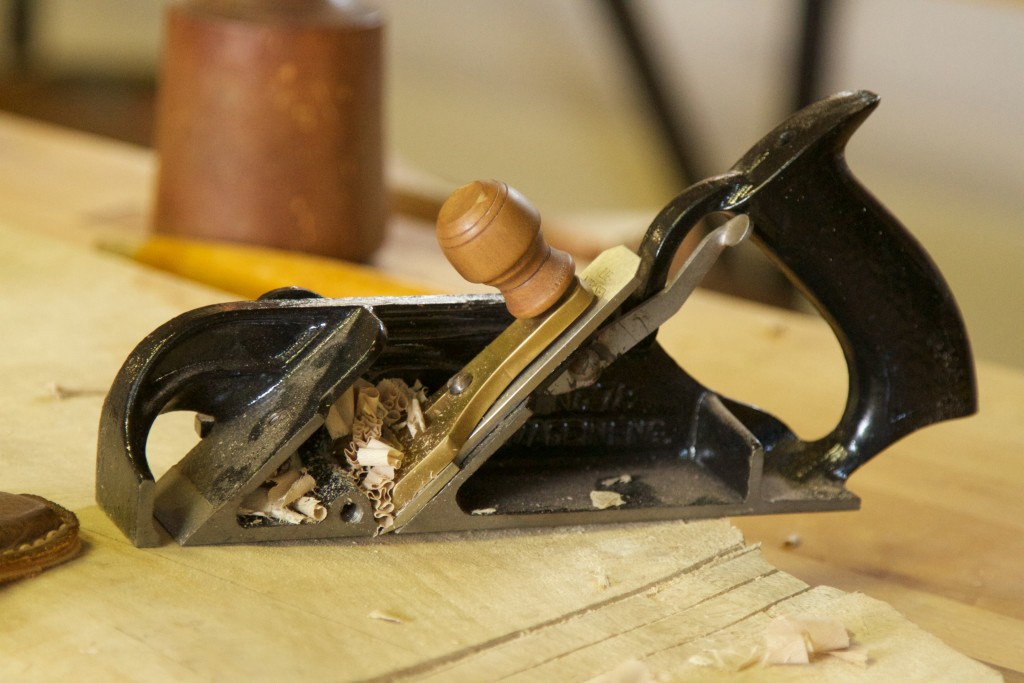20/6/2016
This is a question that came up in a recent discussion I had with Frank Bartlett and Bob Demers. I thought it could be a good idea to have a wider discussion to hear what other woodworkers and collectors of woodworking tools have to say. To get you thinking I will try to verbalise my ideas on the topic.
As a (very much) parttime hobbyist woodworker I do not get to spend a lot of time doing woodwork. It is a constant frustration, especially when you end up not being able to do any work for almost a month, like what happened to me recently (hence my prolonged absence from the blogosphere). During times like that the only thing I can do is to use the little bits of time I do have to read about woodworking or tools. When I think about it, I probably spend a hell of a lot more time reading than working (woodworking that is).
I sometimes get the impression that some bloggers/writers tend to make negative comments about people who read more than what they work. It creates a type of stigma which I think is very unhelpful. Most of the woodworkers that form part of the online woodworking community are not able to make shavings constantly, but tends to read as much as they can because you can do that in short breaks at work, on holiday etc. They are therefore perhaps slightly less skilled, but usually quite a bit better informed about various historical aspects of the craft. That certainly does not make their contribution less valuable or in any way inferior.
Now that I have opened that can of worms, I would like to argue that it is this specific dynamic that has the biggest influence on my collecting tendencies. Reading about various different tools, how they are used, who made them, why they are so “essential” etc etc, plays a huge role in that urge to find such a tool. Once you find one, especially a really old one, it is like finding a treasure of some sort and therefore quite a challenge to resist.
That brings me to another angle on the same basic idea. It is very strange how life can sometimes go full circle. When I had to make the decision to drop woodworking as a subject at school, I replaced it with History. It is a long story which I explained in a previous post, which you can find here. Despite history being something that took me away from woodwork I have a suspicion that it now plays a role in my fascination with tools. Partly as a result of my interest in history, I find it extremely fascinating to read about the history of tools, the companies who made them and learning how to date the tools according to various features that changed over the years of it’s production.
Once you (armed with the above knowledge) then come across a tool that you know was for example made before 1900, it becomes irresistible, especially if the price is ridiculously cheap. It almost feels like time traveling when you have the privilege of using a tool that was used by other craftsmen more than a 100 years ago. In this way you also become part of that history.
At this point I have to state that I still like to think that I buy tools to work with rather than put them on a shelve (of course with no judgement on those who prefer doing just that). I can back that up by the fact that I am buying a lot less now than before. I almost have a complete set of stuff I need for the work I am doing at this stage. Well, to be honest the unprecedented weakening of our currency also played it’s part. Despite that I now only tend to buy very specific tools that I need for certain tasks that would be difficult with my current set.
Again there is probably a caveat to the above statement that would be important to add in the interest of complete transparency. I have been able to find a way to justify further “unnecessary” tool procurements. If I see a tool that is reasonably priced and a significant step up from the one I already have, my justification goes like this: “the new tool can replace my old one and I can then keep the previous one for my son”. In fact I actually also buy tools “for his best mate Connor”. Crafty hey?
Unfortunately it has already happened on a few “isolated” occasions that the justification had to be utilised. It therefore made me take note of Frank’s comment that he decided not to build up a second set of tools for his son. He argues that his son will actually appreciate the tools more as heirlooms if he (his son) has his own history with the tools. In other words, used those very same tools for some years with his father. I have never thought of it like this and think he makes a good point. The only problem I have with that is that it would negate my handy justification (for continued indulgence in tool procurement) and expose my carefully manicured tools to inevitable albeit non-deliberate abuse until their skill level picks up.
What I have noticed though, is that I tend to nowadays lean towards tools that would not need much rehab whereas in the past I bought stuff that needed a lot of work. I do not regret it at all though, as the rehab projects taught me so much about the tools and how they work (or should work). After restoring 6-7 bench planes you should however know what you need to know and it actually becomes something that keeps you from generating shavings, hence my change in tactics. In the picture below you can see a picture of my Stanley no. 78 rabbet plane. It is from my early phase. As you can see it was completely reconditioned, needed a levercap (which I fashioned out of a piece of brass), made an idiosyncratic levercap screw from scratch and ordered a new blade from Lie-Nielsen for it. Now I would not even dream of doing that.
I hope these musings will suffice as a good starting point for a wider discussion on this topic. Please join in and add your two cents’ worth.
PS – for a comprehensive and riveting discussion on the topic see this post by The Valley Woodworker.


